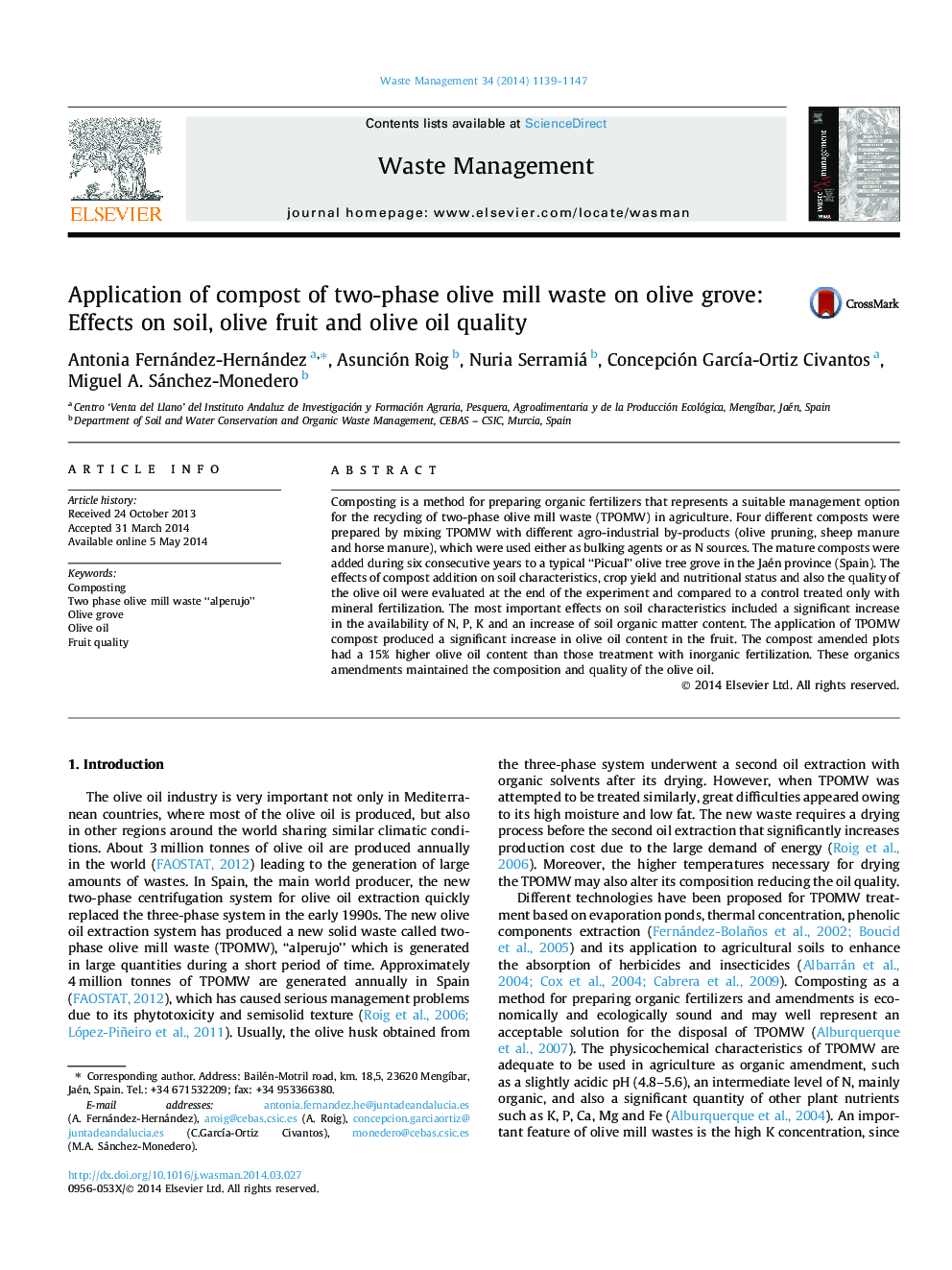| Article ID | Journal | Published Year | Pages | File Type |
|---|---|---|---|---|
| 4471644 | Waste Management | 2014 | 9 Pages |
•The application of TPOMW compost did not cause any negative effects in olive oil quality and yield.•Compost addition increased the olive oil content in fruit compared to mineral fertilization.•Composting can be an environment-friendly method to recycle olive mill wastes.
Composting is a method for preparing organic fertilizers that represents a suitable management option for the recycling of two-phase olive mill waste (TPOMW) in agriculture. Four different composts were prepared by mixing TPOMW with different agro-industrial by-products (olive pruning, sheep manure and horse manure), which were used either as bulking agents or as N sources. The mature composts were added during six consecutive years to a typical “Picual” olive tree grove in the Jaén province (Spain). The effects of compost addition on soil characteristics, crop yield and nutritional status and also the quality of the olive oil were evaluated at the end of the experiment and compared to a control treated only with mineral fertilization. The most important effects on soil characteristics included a significant increase in the availability of N, P, K and an increase of soil organic matter content. The application of TPOMW compost produced a significant increase in olive oil content in the fruit. The compost amended plots had a 15% higher olive oil content than those treatment with inorganic fertilization. These organics amendments maintained the composition and quality of the olive oil.
